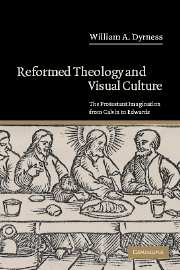|
T N T |
The Native Tourist reformed/biblical observations on Christianity and culture |
 |
|
|
blog by Dave Hegeman author of Plowing in Hope
Dave is:
email: house1870 -at- hotmail Subscribe to August 2002 September 2002 October 2002 November 2002 December 2002 January 2003 February 2003 March 2003 April 2003 May 2003 June 2003 July 2003 August 2003 September 2003 October 2003 November 2003 December 2003 January 2004 February 2004 March 2004 April 2004 May 2004 June 2004 July 2004 August 2004 September 2004 October 2004 November 2004 December 2004 January 2005 February 2005 March 2005 April 2005 May 2005 June 2005 July 2005 August 2005 September 2005 October 2005 November 2005 December 2005 January 2006 February 2006 March 2006 April 2006 May 2006 June 2006 July 2006 August 2006 September 2006 October 2006 November 2006 December 2006 January 2007 February 2007 March 2007 April 2007 May 2007 June 2007 July 2007 August 2007 September 2007 October 2007 November 2007 December 2007 January 2008 February 2008 March 2008 April 2008 May 2008 June 2008 July 2008 August 2008 September 2008 |
Friday, October 29, 2004
Thursday, October 28, 2004
More Christain Realism
Henk Helmantel of the Netherlands. Was featured in the Realism Revisited exhibit which toured the US in early 80s. (You can still find this catalog for sale on the internet!)  Wednesday, October 27, 2004
Christian Realism
One of my favorite contemporary Christian artists is Tim Lowly, who has a new show at Koplin del Rio Gallery in Los Angeles. He is a supurb technician working in a realist mode. But like all good realists, his paintings are really well thought out, equisitely finished, and full of emotion/feeling. His works have a haunting character that never leave me. Monday, October 25, 2004
Where Real Cultural Revival Comes FromMr. Doug Wilson flat nails it again:
But does this means that we should strive for a lack of scholarship in what we do? Certainly not, because anti-intellectualism has a bad case of its own besetting sins as well. Proud ignorance is no better than proud knowledge. The problem is the human heart, which is always about eighteen inches below the head, whether or not the head in question is full of axle grease or erudite learning. Why does Paul taunt the wise man, the scholar of the age? It was because with all his learning, he did not know God.
Kapeesh?
Kudos to my covenant buddy Paul Otto on his article in Catapult on dah Yankee fans in Section 29. His observations remind me of Luke 23:12. What really binds people together? Thursday, October 21, 2004
Trees
Some ruminations on these wonderful creatures from the Bruderhof. To which I add Luther's quote: If I knew the world was going to end tomorrow,
Contentment and Christian Culture
I believe strongly that there is such thing as Christian Culture and get excited when I see bits and pieces of Christian Culture being established. Doug Wilson makes an excellent point that we will never really establish vibrant, extensive Christian Culture until we manifest in our thoughts and lives the fruits of the Spirit. Chief among this is But the fear of the Lord is manifested, gloriously, in gratitude and contentment. It is not manifested first in conservative theology or family values. It is manifested in love, joy, and peace. Ungrateful and discontent peoplein short, worriers and complainerscreate problems, usually for themselves, wherever they go. People who are all in a dither about paper diapers and the environment, demanding we go back to cloth diapers are probably the kind of people who never thanked the Lord for either. St. Paul said he had learned contentment whatever the circumstance. When we are talking about health, diet, environment, etc. this must go in the first place. If it does not, then everything afterwards is skewed. Wednesday, October 20, 2004
Tuesday, October 19, 2004
Love and Law
In biblical thinking - and the application of the scriptures to culture - the moral law and love are not at odds, even thought they are repeatedly portrayed as opposites (at best) or mortal enemies (at worst). We need to live by the "law of love" it is often said. But what is love? Without the moral law how do we know what a loving act is? Consider this passage from a recent remembrance of the late Jacques Derrida, from Books and Culture: But this is a picture of Derrida and deconstruction that one could maintain only by failing to read him. For in the end—or better, from the beginning—deconstruction is a work of love. Far from being a mere "method" for critique, Derrida was at pains to demonstrate the essentially productive aspect of deconstruction. "It is not negative," he once commented, "For me, it always accompanies an affirmative exigency. I would even say that it never proceeds without love." Is it really loving to disregard or cast aspersion on authorial intent or lead reading into radical skepticism? Self delusion runs deep. Which is why we need a law to guide us. Monday, October 18, 2004
Well Worth the Download
Lectures by John Frame on "Christ and Culture". Very good discussion of the topic. I especially liked his critique of the Two Kingdom view. Friday, October 15, 2004
Thursday, October 14, 2004
A Salt on Culture
ByFaith.com online PCA magazine has two part (part 1, part 2) article, "Culture: Hate It? Love It? Redeem It!" by William P. Smith. Some of what Smith says is really helpful. But some is off the mark. In Part 1 he contrasts two opposite extremes: "Denigrating Cultural Influences" and "Accommodating Cultural Influences ". About the former, Smith says There are two problems, however, with this approach. First, it is not possible to isolate those inside the church from the surrounding culture. With society as intertwined as it is, you will always encounter non-Christian elements wherever you are, and you will always be affected by them—your kids (including those attending Christian schools) know about and admire the Hulk, SpongeBob SquarePants, and the Powerpuff Girls, even if you won't let them dress up to look like them. Doing nothing other than obtaining the necessities of life—buying groceries, getting gasoline, shopping for clothes—requires you to interact with others and their cultural influences. And lest you think you could avoid such influences by radically living "off the grid", remember that you, and those with you, being redeemed sinners, will generate your own culture with its attendant sinful distortions. To think that it is possible to avoid "contamination" by eliminating our interaction with those around us is a myth. It may be indeed impossible to entirely avoid the corrupting influence of surrounding godless culture. But should we try to minimize it as much as possible? As Paul said, "Do not be deceived: "Evil company corrupts good habits."" Are we really going to be in danger of not being able to communicate with our surrounding culture? This didn't seem to be a problem for the early Apostles, who were culturally aware of Hellensism but not immersed. Again, I ask, were is the antithesis. Or, to put it another way: How are we to be salt unless we are salty. Wednesday, October 13, 2004
Bureaucracy "Shake"-up
Headline: Mount Lebanon Cupboard Garners $178,250 at New Hampshire Shaker Auction  Tuesday, October 12, 2004
Celebrating the Bard
He was a tender and gardener, and on his walks in rural Stratford he observed flowers and crops and wildlife with the eye of an ecologist; it is doubtful you will find in any writer so many varieties of plants given voice in their seasonal differences and profusion. What he saw once he preserved in an unassailable ether inhabiting his mind. --Larry Woiwode, from an article on Shakespeare in Books and Culture Friday, October 08, 2004
Here's a Book I Hadn't Heard About!

From the publisher: William Dyrness explores the roots of Reformed theology from sixteenth-century Geneva to seventeenth and eighteenth-century Puritan New England. Though this tradition impeded development of particular visual forms, Dyrness argues that it encouraged others, especially in areas of popular culture and the order of family and community. Exploring the theology of Calvin and others, Dyrness demonstrates how the tradition created a new aesthetic of simplicity, inwardness and order to express underlying theological commitments. Wednesday, October 06, 2004
While We're on the Topic of Architecture...
there is talk that Antoni Gaudi the Spanish expressionistic architect is being considered for sainthood. Tuesday, October 05, 2004
Some Books on Church Architecture
When Church Became Theatre: The Transformation of Evangelical Architecture and Worship in Nineteenth-Century America by Jeanne Halgren Kilde Ugly As Sin: Why They Changed Our Churches from Sacred Places to Meeting Spaces and How We Can Change Them Back Again by by Michael S. Rose I found these books when I was snooping the Sacred Architecture Journal site which is edited by Stroik. This journal is Roman Catholic in its orientation. Monday, October 04, 2004
Article on Architecure
The Roots of Modernist Church Architecture by Duncan Stroik, who is Roman Catholic and an arch defender of classicism. It would be fun to see Stroik debate Pugin, the 19th c architect who wrote vociferously that Gothic not pagan Classicism was the ideal for church architecture. An interesting (telling?)quote from Stroik: In the Reformation, Catholic churches were stripped of statuary, paintings and traditional symbols. New churches were designed as "meetinghouses", as if going back to early Christianity when believers met in each others' homes. Architecture, having lost its ability to signify the sacred, became seen as merely providing for the assembly's material or functional needs. The concepts of the church as auditorium and theater in the round derive from early Calvinist buildings which were designed to enable people to see and hear the preacher, such as at Charenton, France. |


